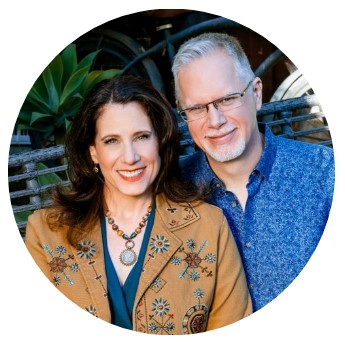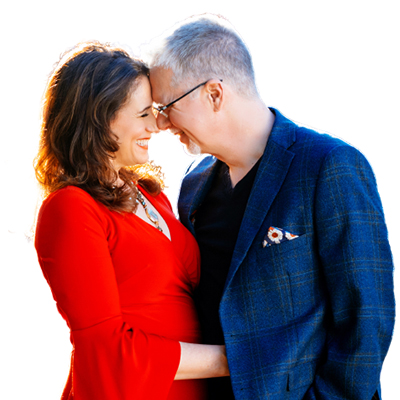Why Do Men Have Blind Spots For A Woman When They’re In Love, But Otherwise Want A Perfect Woman?
“Hi Orna and Matthew,
Why do men have blind spots for a woman when they’re in love, but otherwise want a perfect woman? I met a great man and for the first few months everything was great. He was so romantic and always gave me compliments on my appearance. He seemed to love and accept me.
But then we moved in together and everything changed. He is so critical of how I do everything. I don’t do the dishes correctly. I don’t dress nice enough for him. It seems like I can’t do anything right anymore.
Please help me! I love him so much and I want things to go back to the way they were. I almost wish I hadn’t moved in with him.
I am so hurt and confused.”
Dear Anita,
Thanks for reaching out to us. We know that things feel confusing for you right now, and we also know that what you are going through is essentially “normal.” In fact, some version of this happens in all romantic relationships, and we are here to guide you through this bumpy phase and hopefully bring you some peace of mind.
While your question asks why men have blind spots, we want to assure you that everyone – male and female – has blind spots for their partner. There is a reason for the saying, “Love is blind” and we’ll explain to you the importance of this phenomenon.
We want to assure you that you can use this information to navigate through this relationship phase and deepen the love between you and your man.
The myth of “accidental love” tells us that when you find the magical right person that everything will be easy. That the feelings of being “in love” will last forever and you will easily navigate any conflicts between the two of you.
This unrealistic expectation spread by so many songs, movies, books, and poems has wreaked havoc on our intimate relationship throughout society. No person (or relationship) can live up to the pressure put upon you by the lies of romantic love.
This doesn’t mean that romance doesn’t exist or that love cannot deepen. When you understand why you have blind spots for your partner, how they fit into the natural phases of relationship, and how to progress through them, then you’ll have the roadmap to create something even better than what the movies and storybooks tell you. You’ll be able to create long-lasting, soul-satisfying love.
You and your guy are going through a natural phase in your relationship and with our help, you’ll be able to navigate through these bumps into a deeper more meaningful connection.

The 5 Stages Of Relationship (labeled by Dr. Susan Campbell):
-
The Romance Stage
This first stage is what most people wrongly expect to last forever. The romance phase is where the feeling of “falling in love” comes from. Your brain is flooded with feel-good chemicals like serotonin, dopamine, and oxytocin. You are literally high on love.
During this stage, it’s like your partner can do no wrong. This is when both of you have blind spots to the other’s faults. It’s all new and exciting and it truly is a chemical high that simply cannot last. It is essentially the promise of what can be if you continue to choose one another.
It’s important to have a lengthy romance phase as this puts gas in the tank of your relationship allowing the two of you to get through phase two.
-
The Power Struggle Stage
Once the chemicals wear off from stage one, each person reverts back to their usual self. The power struggle phase is the hangover and serves another purpose, for each person to individuate in the relationship.
It is during this phase that your blind spots wear off and you start to see the person for who they really are.
The power struggle is a tug-of-war between the couple. Now that the relationship is no longer new, each person wishes the other to be more similar than different. These differences that brought them together initially are looked down upon and criticized.
You or your partner could find yourself thinking (and even saying) “If you would just be more like me, then we would get along so much better.” Stressful events reveal our strategies for coping with life events. When your strategies are in conflict with your partner’s strategies then friction arises.
Most couples lather, rinse, and repeat these two stages, or they simply break up and move along to begin again with a new partner, never progressing past to stage three.
-
The Stability Stage
Making the shift from the Power Struggle Stage to the Stability Stage is the key to making love last. It puts you on the path to a much deeper connection and love between the two of you.
The Stability Stage begins when the couple shifts from fighting each other to fighting for the relationship.
This stage creates comfort with a, “You and me against the world” feeling. Now as two individuals they know they can depend on one another. The relationship is on solid ground.
A dysfunctional relationship will never reach this phase, as it requires both people to make the commitment to work through their differences.
The Stability Stage requires each partner to make deposits and withdrawals from the relationship. These deposits and withdrawals come in the form of loving actions you both take towards each other, developing a respect for how and why your partner is different from you, and being open to receive how your partner expresses their love for you.
-
The Commitment Stage
This is when the couple is ready to make a lifelong commitment to each other. You know who your partner is and you don’t need him/her to change.
It’s like you found this person in the “As Is” section of Ikea and even though there are some defects (as in they are not perfect) you will choose to love them anyway.
Most couples make a lifelong commitment while in the romance stage and reach the power struggle before the wedding ceremony. Waiting to make a lifelong commitment until stage four allows you to make an ideal selection for love to last.
Life will always bring you unexpected challenges (whether you are coupled off or not), so it is important to know that you can weather the storms with this other person.
-
The Bliss/Co-Creation Stage
This relationship stage occurs when there is so much love between the two individuals that they must create something even larger than just the two of them.
Traditionally this is to procreate and have children. For other couples, it can be a business together, philanthropy, or charity work.
You may have blind spots during the bliss stage but they’re for your partner’s faults. You’re seeing your partner in their best light and are forgiving of their weaknesses.
This phase of relationship is not stagnant. Once a couple goes through these stages in order, the couple skips around to different stages depending on the events that occur. The deepening of love occurs the longer the couple continues to choose each other and stay together.
How To Move Past The Power Struggle Stage And Into The Stability Stage
Most couples get stuck moving past the power struggle stage. They get stuck fighting each other and lack the skillset to move past and fight for the relationship.
The first step is to recognize this is a natural stage and it won’t last forever.
If you are wishing and hoping that your partner would be more like you and just do things your way, it’s a sure sign that you’ve landed in the power struggle stage.
If your partner appears to you as being overly critical it can be a sign that you’re in the power struggle phase.
If you are avoiding conflict and sweeping things under the rug, or you’ve grown tired of doing so and are now angry and resentful that you’re needs aren’t being met it’s likely you’ve reached this second stage.
We can assure you that you can’t imagine what this will be like. The majority of our clients report back to us that the power struggle is not at all like what they imagined it would be.
Here are some steps as a crash course to move forward:
-
Let go of the rope.
A power struggle occurs when both of you are pulling on the rope in your emotional tug of war. Let go of the rope by choosing to not take your partner’s behavior personally.
The strategies that your partner is using have nothing to do with you. They were developed long before he met you and would show up in any relationship.
When you let go of the rope, you can allow yourself to be curious about your partner and his strategies.
-
Speak how you feel (be authentic)
There is an art to sharing how you feel so that your partner doesn’t get defensive or feel criticized. Practice this template for a better way to communicate your feelings:
“I feel _____________ when _________________. Would you please _____________?”
We’ll break each step down for you.
I feel [insert a single word emotion]
When [add context and avoid using the word “you”]
Would you please [make a direct request]?
Use this template to share how you authentically feel and remain present to hear your partner’s response to your request.
-
Give your partner the benefit of the doubt
Most people date backwards. They have strong feelings for someone and immediately give them the benefit of the doubt. They excuse their behavior and develop blind spots for anything that could be a problem. They go all in with a stranger!
Once they get a commitment, they take off the rose-colored glasses and start looking at their partner with a more critical eye.
This is backwards!
You want to see someone for who they are before you make a commitment to them. Instead of excusing their behavior, get curious about who they are.
Then, when you reach the commitment stage of relationship, pull out those rose-colored glasses because this is the time to see your partner in their best light. Your beloved has earned the benefit of the doubt.
Giving your partner the benefit of the doubt allows you to see their intent even if they let you down, or if you had miscommunication. These are no longer “blind spots” but rather the point of view that you’re in relationship as a team and that your partner is on your side and vice versa.
If you let your blind spots select a stranger for a relationship you may find that you’re experiencing similar situations over and over again that leave you heartbroken. Then you can use this eye-opening experience as an opportunity to do the dating process differently next time.
If you want some insight into what stage of relationship you are currently in, or how to date for your soulmate then join us for a complimentary Soulmate Strategy Session and together we’ll examine your personal roadmap to long-lasting, soul-satisfying love.
About the authors

Orna and Matthew Walters are dating coaches and founders of Creating Love On Purpose with a holistic approach to transforming hidden blocks to lasting love, and the authors of Getting It Right This Time. They’ve been published on MSN, Yahoo!, YourTango, Redbook, Newsweek, Best Life, and have been featured guest experts on BRAVO’s THE MILLIONAIRE MATCHMAKER with Patti Stanger, and as guests with Esther Perel speaking about love and intimacy.






